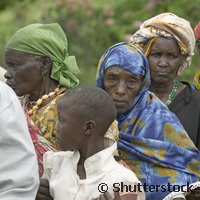Anticipating climate change, tackling disease
Climate change will have a significant impact on the spread of infectious diseases, in particular vector-borne diseases (VBDs) such as malaria and dengue fever. This is partly due to anticipated biodiversity loss, and partly because some diseases thrive in warmer temperatures. The effects of these changes will be felt most strongly among some of the world's poorest communities, either through an increase in the rate of direct infection or indirectly through the loss of domesticated animals and plants. For this reason, the EU-funded HEALTHY FUTURES (Health, environmental change and adaptive capacity) project was launched in January 2011 to construct a disease risk mapping system for three water-related, high-impact VBDs (malaria, Rift Valley fever and schistosomiasis) in eastern Africa. The project, which is scheduled for completion in December 2014, will also develop decision support tools to help health workers assess and compare strategies for managing human responses to these critical disease risks. These tools will be presented at a stakeholder meeting on 24-25 February 2014 at the International Livestock Research Institute's facilities in Nairobi, Kenya. The aim of the meeting is to refine the DSTs with the end-users in mind, prior to their final implementation. The project kicked off in January 2011 by examining several key points. These included assessing the environmental factors that determine the distribution and activity of relevant vectors and pathogens in eastern Africa, and the extent to which outbreaks in the three target VBDs are a reflection of socio-economic conditions, such as migration and conflict. HEALTHY FUTURES has also looked into how the transmission and outbreak of the three target diseases are likely to vary according to internationally accepted scenarios of environmental conditions. The project has also examined the main barriers restricting the ability of health services to respond to disease outbreak warnings, and how best these may be overcome. Another major project conference is scheduled for next year, this one to be hosted by the National University of Rwanda and to coincide with release of the next (fifth) Intergovernmental Panel for Climate Change (IPCC) Climate Change Assessment report. This conference will specifically target the wider implications of research findings, with a view to translating the results to other at-risk regions. HEALTHY FUTURES is now past its halfway point, with less than eighteen months remaining. The project has received 3.38 million in EU funding through the Seventh Framework Programme (FP7) project, the EU's main instrument for funding research in Europe.For more information, please visit: HEALTHY FUTURES http://www.healthyfutures.eu/ Project factsheet
Countries
Ireland



